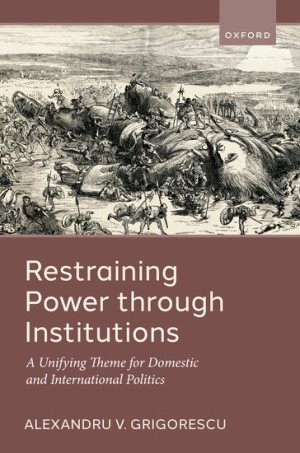
This book challenges the traditional view that meaningful analogies cannot be drawn between domestic and international politics. Alexandru V. Grigorescu shows that there are important parallels to be drawn across these two realms, if political interactions among states over the past two centuries are compared to those within states going back about a thousand years. He focuses specifically on the evolution of institutions that restrain concentrated power, such as courts, assemblies, and bureaucracies.
Restraining Power through Institutions begins by developing a set of theoretical arguments about the emergence, change, and consolidation of institutional restraints on power. These are primarily derived from literature focusing on domestic politics going back to events such as those surrounding the signing of the Magna Carta and the emergence and evolution of the Curia Regis in England, or of the Estates General and Parlements in France. It then assesses the relevance of such arguments for the evolution of numerous international institutions: international courts, such as the Permanent Court of Arbitration, International Court of Justice, and International Criminal Court; international assemblies and parliaments, such as the Assembly of the League of Nations, UN General Assembly; and European Parliament; and international secretariats, such as those of the Central Commission for the Navigation of the Rhine, League of Nations, UN, and World Bank.
The similarities between developments in the domestic and international realms lead to a number of important conclusions about future expectations for international institutions and for world politics more broadly. In particular, the book argues that complementing the traditional focus on efforts to acquire power with the "Lockean" focus on restraining power offers a more complete depiction of international politics. This novel perspective consequently shifts the focus from the interests and actions of a handful of powerful states to those of virtually all states and groups of states, regardless of how powerful they are.